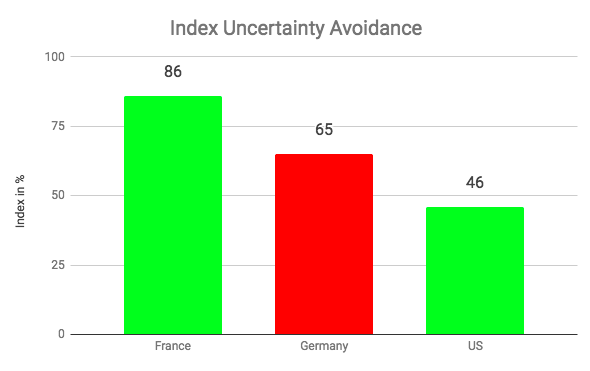
Europeans move house much less frequently than Americans. When doing business with the French or Germans, structured planning is vital in order to minimize anxiety in the face of unexpected risks.
Last week, my 7-year-old daughter came home very sad. The reason? Her good friend Colton has announced that he’ll be moving to Florida at the end of the school year. Pauline asked me if we could visit him (maybe) or move there too (no).
Since Colton’s older brother plays basketball with Pauline’s brother, I spoke with their mom during last Sunday’s game (they won). She confirmed that they’re indeed moving to Pensacola, and I learned at the same time that Colton’s dad is in the army. Moving every three years, she said, is the norm for them.
Even during my first visit to the United States in the 1990s, I had the feeling that the Americans I talked to never came from the region in which I met them. This feeling has changed a little since I’ve been living in the country: I would say that it’s more true for urban inhabitants than those in remote destinations outside of the metropoles.
Hollywood movies seems to confirm the geographical mobility of Americans. In the western movies my Dad loved to watch, settlers hoping for a better life moved west in covered wagons. But, there is no need to go so far back: just think of Twilight (2008), Footloose (2011), Toy Story (1995), Inside Out (2015), and others. All of them show the protagonists moving to a new place.
What about Europe? Do Europeans move less than Americans?
In a Gallup study, 24% of American adults reported moving within the country in the past five years. The same survey attests that North America is one of the most mobile countries in the world
The following figures can’t be compared exactly because the methodologies differ, but according to local statistics, only 13% of Germans and 5% of the French change their domicile every year.
A deeper look into the German figures gives an interesting insight: 47% of Germans moved to a bigger house or condo in the same area! So much for mobility. Only 17% moved for professional reasons, which I assume means from one city to another.
The facts confirm my feelings: The French and Germans really move much less often than Americans do.
What does that mean for business?
In Germany and in France, educated, urban young people are more likely to have moved since their career began. However, that’s not always true.
When we bought our house in Eltville, a small town closed to Wiesbaden, a new neighbor proudly told us that he wasn’t from the area. I asked where he was from, and he answered with a gesture toward the yard, indicating the top of the hill. He meant the village behind us, maybe a 10-minute drive. He was in his early 30s and educated, and he worked as a manager for a very large German company.
After years of living close by, I would describe him as a typical German: friendly, polite, accurate, reliable, and predictable.
Long-term planning is a serious matter in Germany because Germans try to minimize errors by considering all eventualities. Details are important and should be treated carefully. One could say that it’s a form of risk-avoiding.
What does science say about this?
Geert Hofstede, a Dutch social psychologist, is best known for developing a theory of cultural dimensions. His research visualizes different cultural values via indexes. In his work, the dimension of “uncertainty avoidance” covers the aspects of risks, control, and prediction.
Let’s look at the American, German, and French indexes of uncertainty avoidance:

While the US scores low, France’s and Germany’s scores are high, with the French index even higher than the German.
This may be surprising for a quasi-Latin country like France. But, the French like a structured work environment. To them, planning is equally important but more flexible than for Germans.
Hofstede states that “As a consequence, the French are good in developing complex technologies and systems in a stable environment, such as in the case of nuclear power plants, rapid trains, and the aviation industry.”
For Americans, who are used and willing to try something different, this can be a source of frustration as they perceive sticking to the planning as a means of slowing down decision-making and processes.
I spoke during the weekend with a friend. A French citizen living in Germany, Emmanuelle now works as a marketing manager for an American company. She said that she enjoys the “can-do” and quick problem-solving mentality of her American counterparts. At the same time, she hasn’t stopped wondering why she never got a written contract as proof of her employment. Even after working at the company for 10 years, she is still afraid of what this lack of documentation could mean if a legal problem ever arose.
Is moving less often proof of risk avoidance? Maybe. However, the fact is that the French and Germans prefer certainty.




Interesting take on an topic I didn’t realize existed!
Thank you Marie.